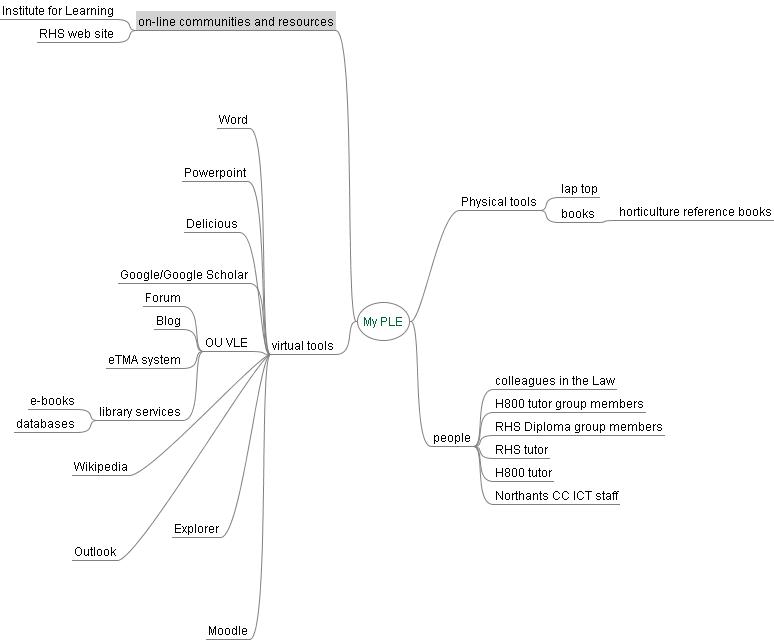1. Do you think the innovations described in Weeks 8 and 9 as ‘learning design’ would induce more desirable approaches to studying on the part of the students?
This question appears to contain the assumption, present but not clearly articulated in Richardson (2005), that ‘deep learning’ is more desirable than the superficial or strategic approaches. I think that that gives rise to a number of questions – not least of which is ‘desirable by whom and why?’. However to leave that issue to one side, it would appear that the Learning Design approaches and activities discussed in Weeks 8 & 9 do have the potential to encourage ‘deep learning’.
‘A learning activity, …, is an entity that is meaningful to the learner, given his or her current level of expertise’. (Beetham 2007 pg 27) However she notes that there is a tendency in designing learning activities for VLEs to focus on the non-pedagogical aspects of the materials or process (Beetham, pg 27)– which could undermine the student- and activity-focused nature of the activities.
Focus, as Beetham suggests, on the desired learning outcomes may counter this tendency as such an approach is inherently student-centred (unless it becomes distorted into a focus on the student being assessed at a single point in time as achieving that learning outcome – which will result in teaching to test and thus a superficial approach to learning and to teaching)
The design of learning by focusing on the learning outcomes can facilitate ‘deep learning’ approaches by the student. However this is not straightforward.
One potential difficulty with a focus on learning outcomes is that they may not be indicative of ‘deep learning’ – ‘students will be able to correctly recite their 10 X table’ is a learning outcome, but it is focused on an activity at level 2 of Saljo’s five conceptions of learning and attainable by entirely ‘superficial’ means.
The thesis is probably better restated as ‘focus on learning outcomes may facilitate student –centred learning and thus ‘deep learning’ provided the learning outcome is demonstrative of ‘deep learning’
Kember et al (1997) described ‘deep learning’ as being encouraged by project or problem based courses and courses that encourage reflection. Such courses are by their nature student centred and activity focused. The use of such approaches can be aided by the use of VLEs and ICT as described by Beetham:
‘Hypermedia and adaptive tutorials allow learners to select their own routes through materials. Search engines and portals give a far wider choice of resources, and e-portfolios allow learners to collate evidence of their achievements in a way that is highly personal.’ (Beetham, pg 33)
The difficulty with on-line education as with all distance education is that encouraging and facilitating collaboration between students (which is a crucial component of the effective problem and project based-teaching case studies described by Kember et al) is that much harder and the technology itself can present a barrier to participation.
Turning to the design tools it is less clear that the use of these will necessarily lead to teaching that encourages ‘deep learning’. Some are modelling tools that allow visual representation (e.g. Compendium LD). This tool assumes that the student is an element of the design, but could nonetheless be used to model activities that were related to stages 1-3 of Saljo’s five conceptions and focused on the tutor. Such a tool can incorporate multiple choice assessments and rote learning as easily as it can model any other pedagogic approach. The benefit of the tool however is that it makes it easier to look at the design from the tutor and student perspectives whereas more traditional approaches may overlook the student experience.
The 8 Learning Events Model (LabSET) is explicitly student –centred and therefore designs using this approach should, subject to the point above about formulation of learning outcomes, facilitate ‘deep learning’.
To sum up therefore, the use of the learning design tools and theoretical approaches considered in Weeks 8 & 9 encourage the designer to focus on the student by making the students position in the process explicit. However whether or not the design process facilitates ‘deep learning’ will still be dependent on the designer’s view of teaching. Designers whose view of teaching is equivalent to types 1 and 2 of Kember’s typology (as quoted in Richardson) will design tutor centred activities and courses, which will arguably facilitate ‘superficial’ or ‘strategic’ approaches to learning from student (Kember et al 1997)
